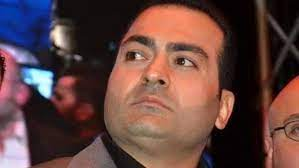Sawt al-Asima sources verified the recovery of two bodies buried in the warehouse’s courtyard.
Recent sources from Sawt al-Asima in Latakia have disclosed details following a clash between security forces and associates of “Abu Ali Khadr.” The confrontation occurred during a raid on a warehouse owned by Khadr on January 16.
Sources from Sawt Al-Asima reported that the raid resulted in fatalities among the warehouse guards and injuries to others. The operation successfully liberated three kidnapped individuals, including a merchant’s son from Aleppo, although his identity remains unconfirmed by Sawt Al-Asima.
Post-raid, the security forces transported one rescued individual to a Lattakia hospital, while the other two were taken to Damascus.
Further investigation revealed that the raided warehouse, located near Al-Hal Market in Latakia, served as a secret underground prison with rooms for detaining kidnapping victims. The warehouse was used by groups linked to Abu Ali Khodr for storing smuggled alcohol, juices, and tobacco products, monopolized by Khodr in Syria.
Sawt al-Asima sources also verified the recovery of two bodies buried in the warehouse’s courtyard. In addition, the raid yielded machine guns, narcotics, and counterfeit money.
Over the past two weeks, the Republican Palace initiated a crackdown on properties and associates of Abu Ali Khader, including his companies and employees.
A previous report by Sawt al-Asima revealed that Khodr had severed ties with Maher al-Assad months ago, after years of association. Al-Assad had then transferred Khodr’s oversight to the Republican Palace, specifically to the Economic Committee led by Asma al-Akhras.
Mid-month, security patrols under the Republican Palace’s direction conducted raids in Damascus, Homs, and Latakia. These operations targeted homes and offices associated with Khodr, his close contacts, and connected military security officers. The raids resulted in confiscations of money, and vehicles, and arrests, notably of officers in “Branch 215” of the Military Security.
The National Security Office, Syria’s top security body, acting on directives from the Republican Palace, has barred official institutions and security and military agencies from engaging with Khodr, his affiliates, and companies. The order extends to personnel associated with Khodr, with many summoned for investigations at security branches.
As arrests and confiscations continue, Khodr’s current whereabouts and fate remain uncertain, amidst the regime’s ongoing efforts to reclaim assets they allege were illicitly obtained.
 Eurasia Press & News
Eurasia Press & News



